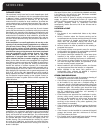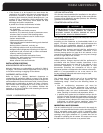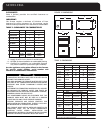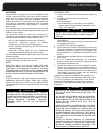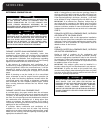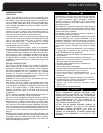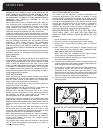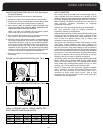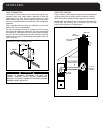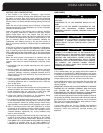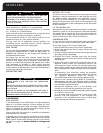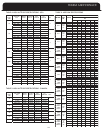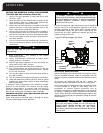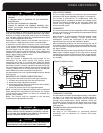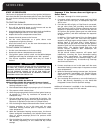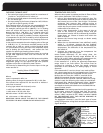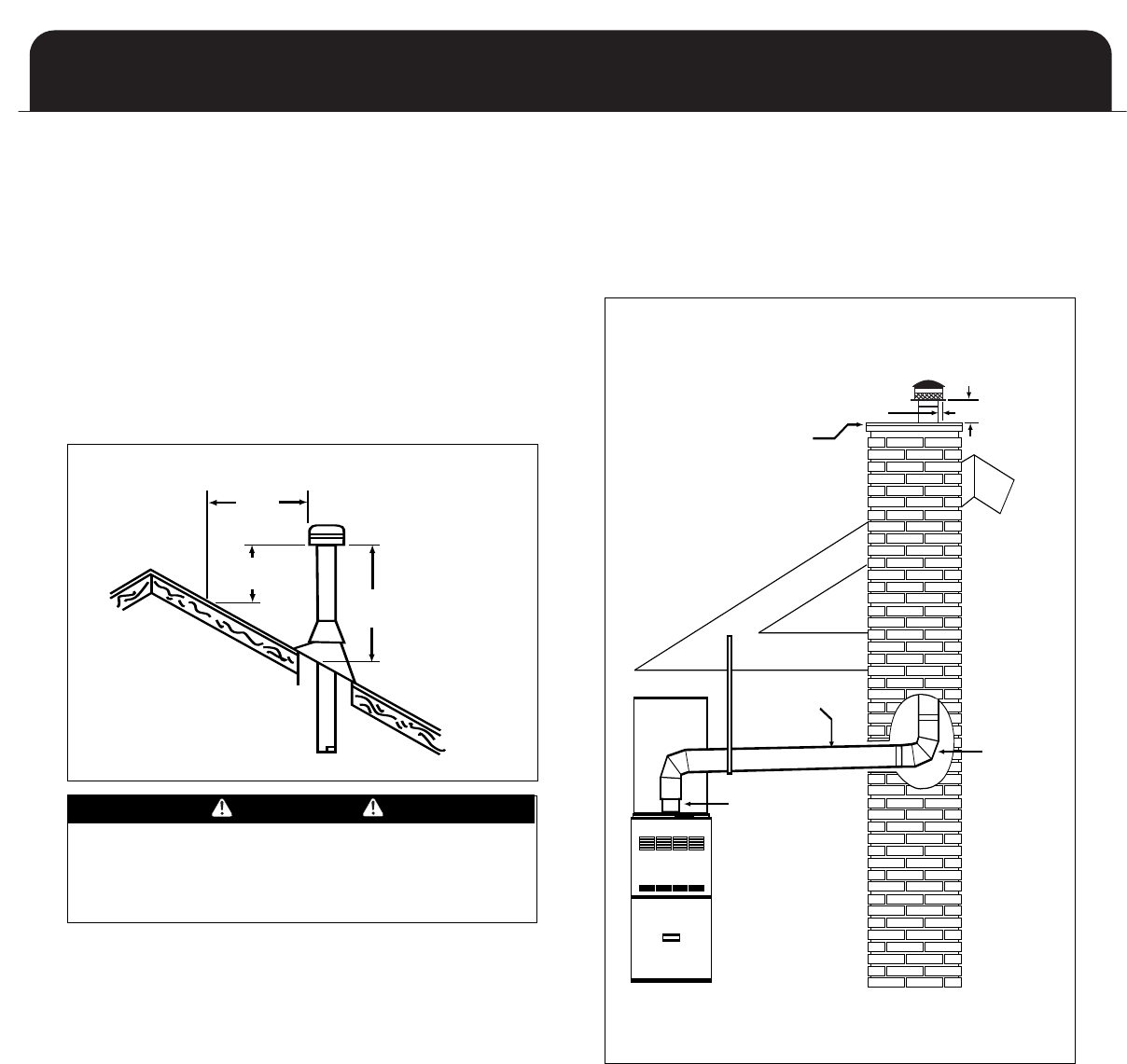
11
MODEL F80A
V
ENT TERMINATION
Terminate all vertical vents with a listed vent cap or roof
a
ssembly unless local codes require otherwise. Locate the
termination in an area free of positive pressure or wind
eddies. Eddies may occur when wind swirls over roof peaks.
They can cause downdrafts and interfere with normal vent
operation.
Some manufactured vent caps are resistant to wind and
eddies; their use is recommended.
T
he vent termination must be a minimum of 5 feet above
the highest gas appliance connection. The vent must extend
a minimum of 3 feet above the point that it passes through
the roof. The vent termination must be a minimum of 2 feet
higher than any part of the building horizontally within 10
feet of the vent.
D
EDICATED VENTING
Figure 7 (below) shows a good method to permit dedicated
v
enting making use of B-Vent within a masonry chimney.
When using this method, provide support for the B-Vent.
I
MPORTANT: maintain at least 1-inch clearance between the
B-Vent and the chimney tile or chimney. This will help
prevent the formation of condensation.
R
IDGE
1
0 FT.
RAIN TIGHT
FLASHING
1
" MIN.
C
LEARANCE
VENT CAP
5" MIN.
B-1 VENT
RIGID OR
FLEXIBLE
B-1 VENT
ADAPTER
SLOPE UP MIN. 1/4" PER FT.
1" MIN. CLEARANCE
TO COMBUSTIBLES
2 FT.
MIN
3 FT.
MIN
Figure 8: Vent Termination
RIDGE
10 FT.
RAIN TIGHT
FLASHING
1" MIN.
CLEARANCE
VENT CAP
5" MIN.
B-1 VENT
RIGID OR
FLEXIBLE
B-1 VENT
A
SLOPE UP MIN. 1/4" PER FT.
1" MIN. CLEARANCE
TO COMBUSTIBLES
2 FT.
MIN
3 FT.
MIN
FIGURE 7: DEDICATED VENTING
FIGURE 6: VENT TERMINATION
CAUTION
FAILURE TO PROPERLY TERMINATE THE VENT OR
CHIMNEY SYSTEMS COULD ALLOW COMBUSTION
PRODUCTS TO COLLECT INSIDE THE BUILDING CAUSING
PERSONAL INJURY OR DEATH.



